Teeth Grinding and Its Effects on Our Teeth
Have you ever woke up with a sore jaw? If you did, chances are you are actually teeth grinding. Bruxism, commonly known as teeth grinding or jaw clenching, is the act where you subconsciously tighten your teeth against each other. İn moderation, it doesn’t seem to pose any threats to oral health. But just like other things in life, if you are doing it every night, there might be some complications on the way. Bruxism mostly happens while you are sleeping and that’s why it’s called nocturnal bruxism. If you are doing it at the day time, it’s called awake bruxism. In this blog, we will give you a general information about bruxism and treatment methods. We will also dive into why we we are doing it at the first place and if its harmful to our general oral health. Since we know what bruxism is, lets see how bad it is.
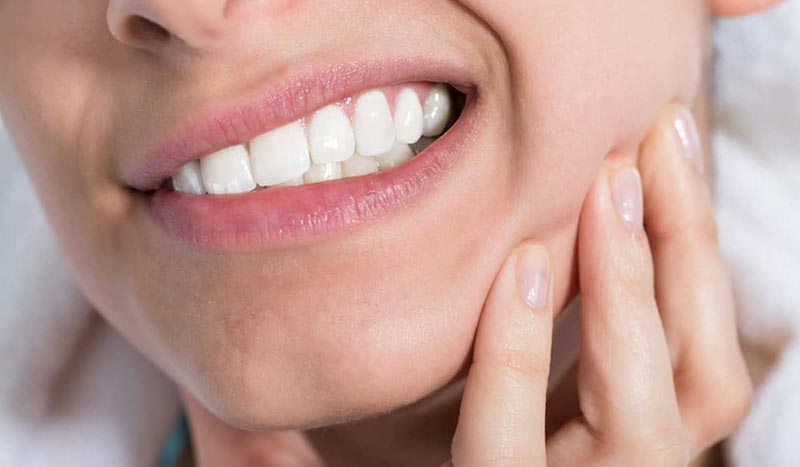
Why is teeth grinding bad?
Majority of the population clench their jaw in some shape or form. You can do that while playing a game, doing sports, making an imitation and in many other activities. It only becomes bad and potentially dangerous when we start to do that without knowing. Even then you have to go to extremes. Bruxism can become a chronic issue in a matter of weeks. When that happens, the problems you are going to face can range from chipped, cracked, fractured tooth to even tooth lose. Some severe cases can face with multiple jaw issues such as temporomandibular joint dislocation to bite problems.

Teeth grinding can also create problems for your crown, veneer or implant treatments. Post operation period are very important for the success of your crowns-veneers or implants. Teeth grinding can put high amounts of pressure to these newly made teeth and can result in the failure of these dental procedures. Especially laminate veneers and composite veneers are in huge danger because of their weaker(compared to crowns and implants) general outline. Most of the crowns and implants can withstand jaw clenching. But, it would take a good portion from the lifespan and that would result in the patients redoing the same treatments sooner.
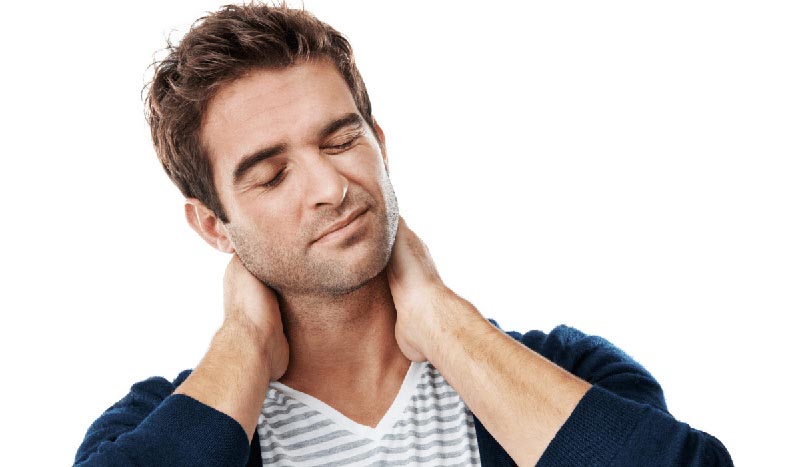
Why do people grind their teeth?
There is not a clear answer to why people grind their teeth. It all depends on the person and the life they live. Stress and anxiety are big factors in teeth grinding. Students whose getting closer to exam date are shown to develop a nocturnal bruxism to a small extent. Physical activities such as weightlifting also plays a part. When lifting a weight, your face and jaw tighten with the rest of your body. This can become a habit and develop into nocturnal bruxism. Chewing a gum is also a non native sucking motion and can easily change into teeth grinding. As we see, there is not a one factor that we can specify as the reason for bruxism. İnstead, every one of these can be the reason for the development of bruxism. But to sum it up: playing sports, anxiety, stress, pressure, chewing gums can all be considered the reasons.

How to know if I have teeth grinding when asleep?
It’s fairly easy to spot nocturnal bruxism. Because of the fact that the act itself happens while we are sleeping, we get the feedback the very morning. The main symptoms are having a sore jaw, pain in the chewing teeth area and a minor sustained headache. Because of the teeth grinding, you may see some hypertrophy (muscle increase) in your temporal (temple area) and masseter (jaw) muscles. These gains would result in a wider look on your face. But, this varies from person to person and can be also a result from excessive gum chewing.
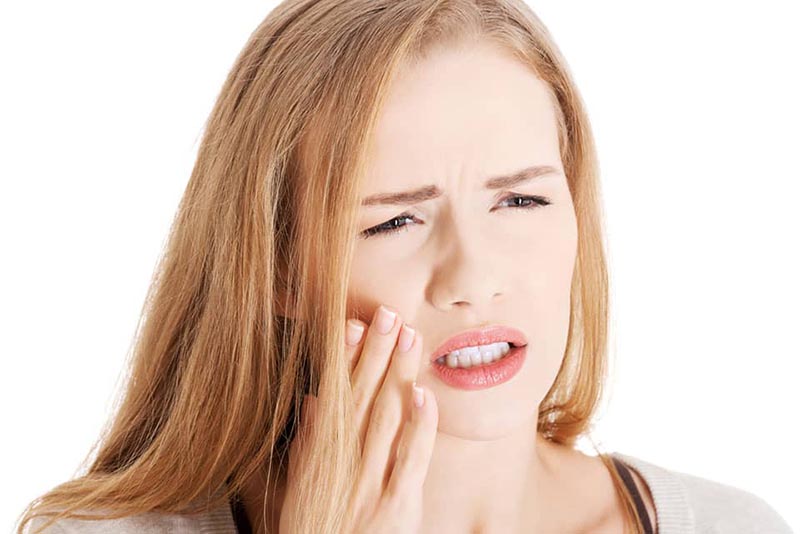
Teeth grinding at toddlers and kids
Teeth grinding in babies is similar to adults. The only difference is, toddlers can’t express their problem with words and this makes it harder to diagnose bruxism on them. It’s often parents that hear that harsh teeth grinding sound. If you hear a sizzle from your toddler while he/she sleeps, its time to see a dentist. Teeth grinding in kids is the same. Even though they can convey some of the problems they face, parents can very well disregard it as something that can come and go (if it’s not severe). There is some truth to this claim. Most kids that experience bruxism, eventually overgrow it. It only becomes an issue when it stays with the kid for a very long time. If its a weekly thing because of an exam or a football match, it won’t matter that much. But, if your kid has anxiety and feels under stress, bruxism can become a permanent problem.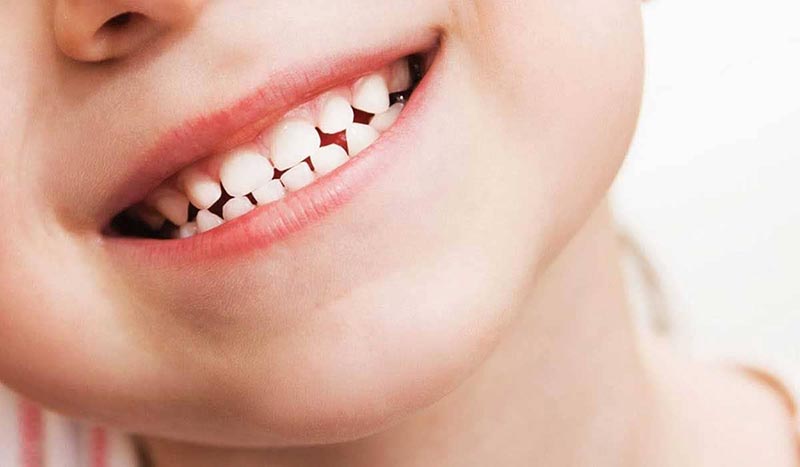
How to stop teeth grinding?
There are some few tricks that you can use to stop bruxism on it’s tracks before doing a treatment plan. Some of these are:
- Try to minimize stress: Do things that cheer you up and make you feel alive. Stress is normal but don’t let it control you.
- Lay down the hard foods for a while: Eat soft foods for a while to minimize your grinding problem.
- Limit caffeine: Caffein before bed time can cause sleep apnea and sleep apnea can result in jaw clenching.
- Limit or eliminate chewing gums: Chewing gums is considered a jaw exercise. It can also result in the chewing motion becoming an involuntary habit while sleeping.
- No alcohol: Drinks that contain high levels of alcohol can create teeth grinding. Low levels of alcohol consumption ( multiple beers) doesn’t seem to affect it that much.
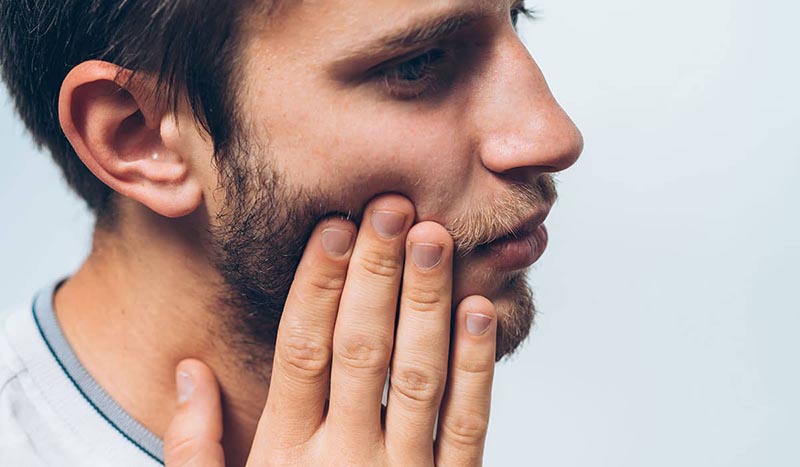
Teeth grinding treatment plans
Teeth grinding is a situation that can come and go without you taking any action. But, in case it continues a while and the side effects start to bother you, a proper treatment plan might be beneficial. When treating a bruxism situation, the most successful method has always been mouthguards. Mouthguard ‘teeth grinding guard’ works as a punching bag in a sense that they stop your teeth from grinding to each other. Using a mouthguard will protect the teeth from the pressure of grinding and reduce your jaw pain. They are really easy to use and give results from the first night you use them.
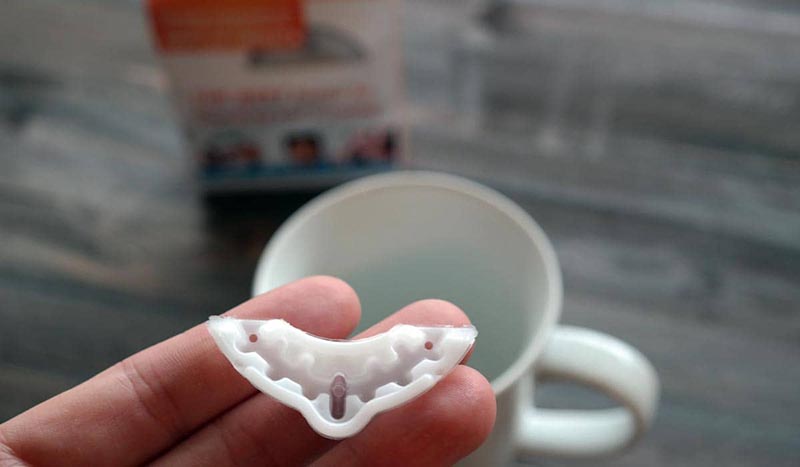
At first, it might be hard for people to get used to it considering that it will stay at your mouth while you sleep. But, this process is easy to get over and requires just a bit off patience. After getting use to it, you will realize that the side effects will eventually go away. Teeth grinding guards are suitable for daily use as well. If you think you are teeth grinding while lifting weights or participating in a physical sport, you can use your teeth grinding guard to minimize the pressure on the jaw. This way, you can prevent awake bruxism from happening as well. Mouthguards are made from plastic and therefore do not cause any harm to your mouth. They are also flexible enough to suit your jaw size and teeth type. You can get them from a pharmacy but you need to know your mouth measurements to get the correct one. You can also go to your dentist to get a custom made one. Custom made mouthguards fit to your own mouth perfectly. They are a bit more expensive but also a lot safer. Your dentist will take your jaw and teeth measurements to craft your individual mouthguard.
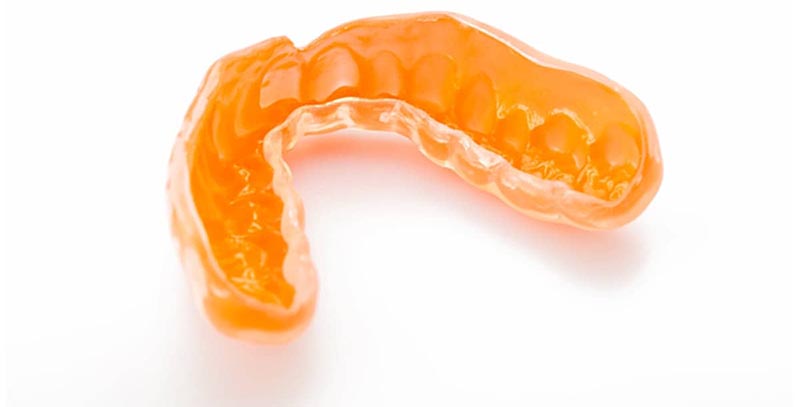
Some patients develop bruxism because they have a crowded mouth or crooked teeth. In this case, before getting a mouthguard, a tooth extraction or a reductive coronoplasty might be needed to level the playing field. You should consult your dentist if that’s the case with you. Whatever you do, be safe and don’t grind your teeth!
Summary
Teeth grinding is a problem that many people overlook. It can result in various problems depending on the severity of the situation. People who took other treatments such as dental implants, veneers or crowns should pay more attention to this habit to protect their post operation success. Good news is, its easily fixable.
